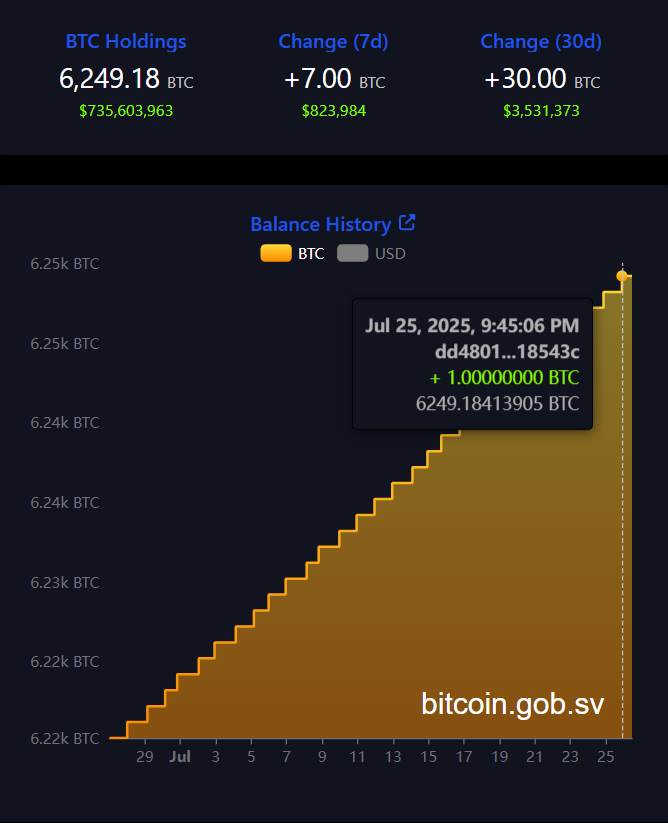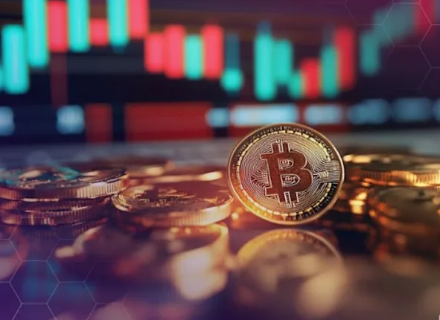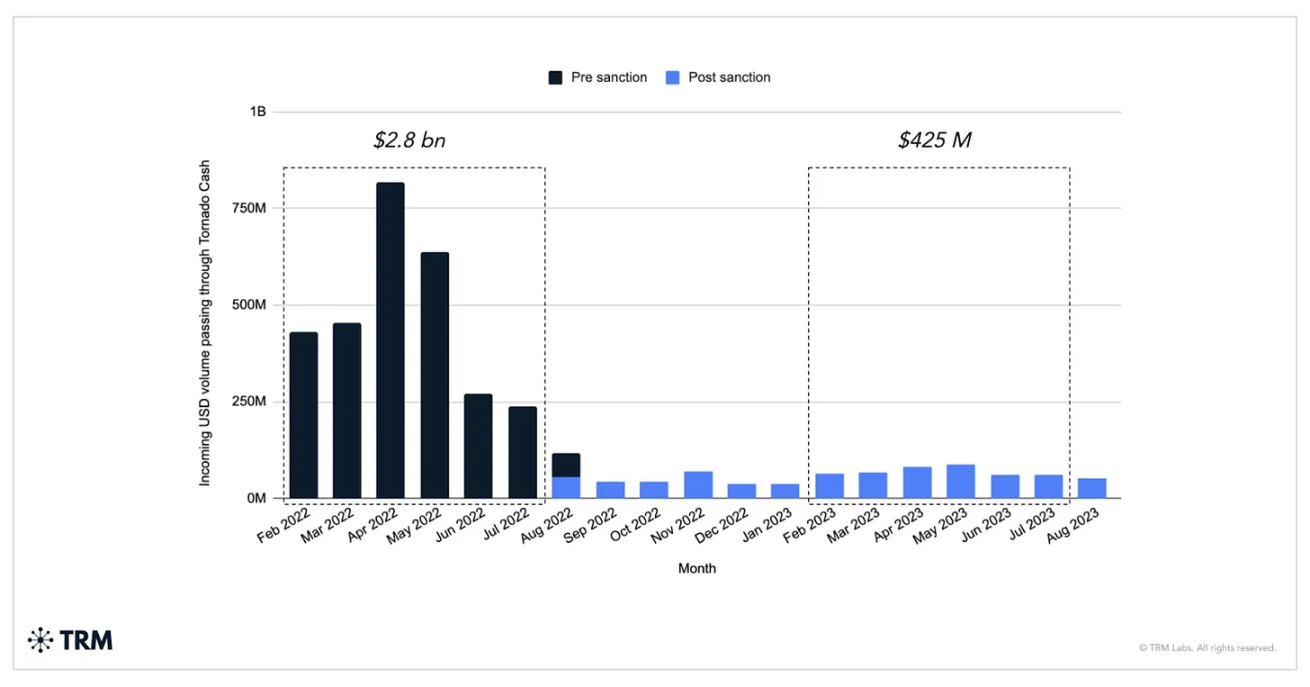El Salvador Insists It’s Buying Bitcoin Despite IMF Saying Otherwise
The El Salvador government is ramping up its Bitcoin education efforts, training civil servants and launching nationwide programs to promote crypto literacy.
El Salvador has quietly added more Bitcoin to its national treasury, despite recent claims from the International Monetary Fund (IMF) suggesting otherwise.
The country’s latest move signals continued support for its pro-Bitcoin policy, even as external pressure mounts.
El Salvador’s Bitcoin Reserve Numbers Face IMF Doubt
On July 24, El Salvador’s Bitcoin Office confirmed a fresh purchase of 8 BTC, valued at approximately $948,392. The announcement shows the coins were acquired at an average price of $118,549 each.
This brings the country’s total publicly reported Bitcoin holdings to roughly 6,248 BTC—currently worth around $740 million.
However, this disclosure contradicts a recent statement from the IMF. The organization claimed that El Salvador had not purchased any new Bitcoin.
 El Salvador Bitcoin Purchase As Claimed by the Government. Source:
El Salvador Bitcoin Purchase As Claimed by the Government. Source:
According to the IMF, the country has been shuffling coins between wallets rather than making new acquisitions. It argues that these internal transfers create the illusion of accumulation when, in reality, the total amount of BTC held remains unchanged.
The IMF also said the national Bitcoin wallet system does not accurately update reserve figures in real time, leading to further confusion.
John Dennehy, founder of the Bitcoin education project ‘My First Bitcoin’, supported this view. He described the recent wallet activity as “misleading,” stating that transfers between internal accounts are being framed as fresh purchases without increasing the total holdings.
Another day, another Bitcoin transferred from an undisclosed govt controlled wallet to a public facing govt controlled walletIt's misleading to present this as El Salvador stacking when in reality the total amount stays the same
— John Dennehy (@jdennehy_writes) July 24, 2025
The Salvadoran government has not officially responded to the IMF’s statement. However, it continues to highlight its broader Bitcoin strategy, particularly in education.
Stacy Herbert, Director of El Salvador’s Bitcoin Office, pointed to a growing list of national programs aimed at increasing Bitcoin literacy.
These include initiatives like Node Nation for high school students, the Bitcoin Diploma program, and CUBO+, which engages young tech talent across the country. Over 80,000 civil servants are also receiving training under a program known as ESIAP.
This means that El Salvador continues to position itself as a pioneer in Bitcoin adoption. However, questions about transparency and compliance with international financial agreements persist.
Disclaimer: The content of this article solely reflects the author's opinion and does not represent the platform in any capacity. This article is not intended to serve as a reference for making investment decisions.
You may also like

Mars Morning News | Federal Reserve Hawks Speak Out, Asset Price Crash Risk May Become New Obstacle to Rate Cuts
JPMorgan warns that if Strategy is removed from MSCI, it could trigger billions of dollars in outflows. The adjustment in the crypto market is mainly driven by retail investors selling ETFs. Federal Reserve officials remain cautious about rate cuts. The President of Argentina has been accused of being involved in a cryptocurrency scam. U.S. stocks and the cryptocurrency market have both declined simultaneously. Summary generated by Mars AI. This summary is produced by the Mars AI model and its accuracy and completeness are still being iteratively improved.

Citibank and SWIFT complete pilot program for fiat-to-crypto PvP settlement.
Pantera Partner: In the Era of Privacy Revival, These Technologies Are Changing the Game
A new reality is taking shape: privacy protection is the key to driving blockchain toward mainstream adoption, and the demand for privacy is accelerating at cultural, institutional, and technological levels.

